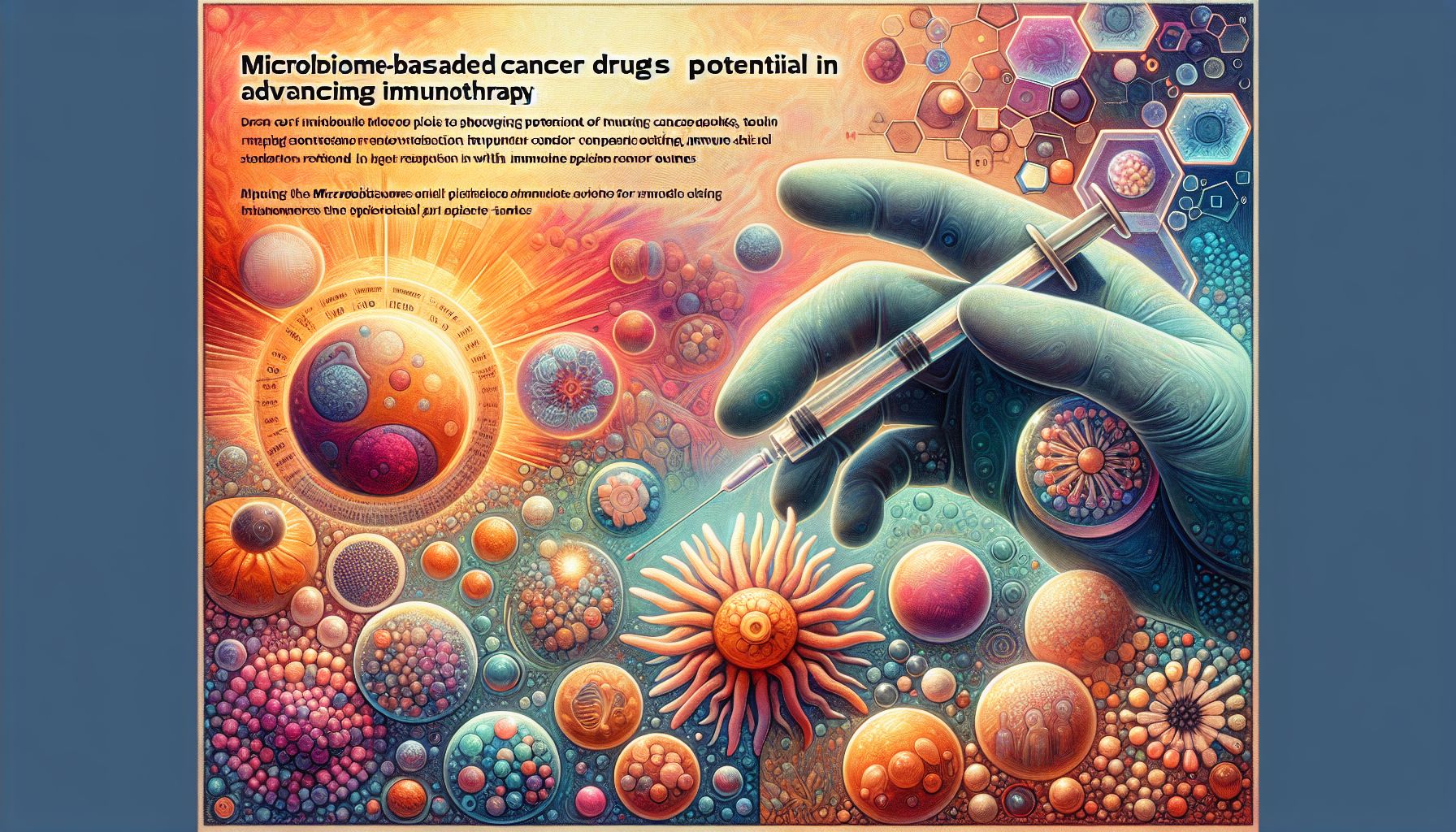Microbiome Drugs Show Promise in Enhancing Cancer Immunotherapy

Amsterdam, Wednesday, 11 September 2024.
Microbiotica’s MB310 and MB097 advance to phase 1b trials, potentially revolutionizing immune checkpoint inhibitor efficacy in cancer treatment. These microbiome-based therapies aim to improve patient response rates, addressing a critical gap in current immunotherapy outcomes.
Significance of Microbiome Drugs in Cancer Treatment
Microbiome drugs MB310 and MB097, developed by the U.K.-based biopharma company Microbiotica, have received regulatory approval from both the European Union and the United Kingdom to commence phase 1b studies. These therapies are designed to work in conjunction with immune checkpoint inhibitors (ICIs), such as Keytruda, which have already made significant strides in cancer treatment but remain ineffective for a significant subset of patients. The approval marks a pivotal step in integrating microbiome-based solutions to enhance the efficacy of existing cancer therapies.
Mechanism of Action
The human microbiome, a complex ecosystem of microbes that has evolved over millions of years, plays a crucial role in the body’s overall health, including its response to diseases and treatments. Research since 2015 has shown that a patient’s microbiome can significantly impact their response to ICIs. Microbiotica’s MB097, for instance, is a defined consortium of nine bacterial strains selected for their ability to promote immune responses essential for tumor destruction. This combination aims to reprogram the gut microbiome of patients who previously did not respond to anti-PD-1 therapy, making them more receptive to treatments like Keytruda.
Clinical Trials and Expected Outcomes
The upcoming MELODY-1 trial will focus on advanced melanoma patients who have not responded to prior anti-PD1 treatments. The trial aims to measure tumor response, strain engraftment, immune biomarkers, safety, and tolerability of the combined therapy. Microbiotica’s CEO, Tim Sharpington, emphasizes that optimizing the patient’s gut microbiome offers a unique opportunity to increase the number of patients who can benefit from ICIs. Initial data readouts from these trials are expected by the end of 2025, providing critical insights into the potential of microbiome-based therapies in cancer treatment.
Global Perspective and Future Directions
While Microbiotica is at the forefront of this innovative approach, other companies worldwide are also exploring the potential of microbiome therapies. For instance, France-based MaaT Pharma is developing microbiome therapies for hematological and immuno-oncology applications, and Seres Therapeutics in the USA is advancing SER-401 to enhance ICI efficacy. The global interest and investment in microbiome therapeutics signify a growing recognition of the microbiome’s critical role in health and disease. As research continues to uncover the intricate relationships between the microbiome and cancer therapy, the field is poised for substantial growth and innovation.
Conclusion
The integration of microbiome-based therapies like MB310 and MB097 represents a promising frontier in cancer treatment. By enhancing the efficacy of ICIs, these therapies could significantly improve outcomes for patients who currently do not benefit from existing treatments. As the MELODY-1 and COMPOSER-1 trials progress, the medical community eagerly anticipates the results, which could pave the way for broader applications of microbiome drugs in oncology and beyond.

